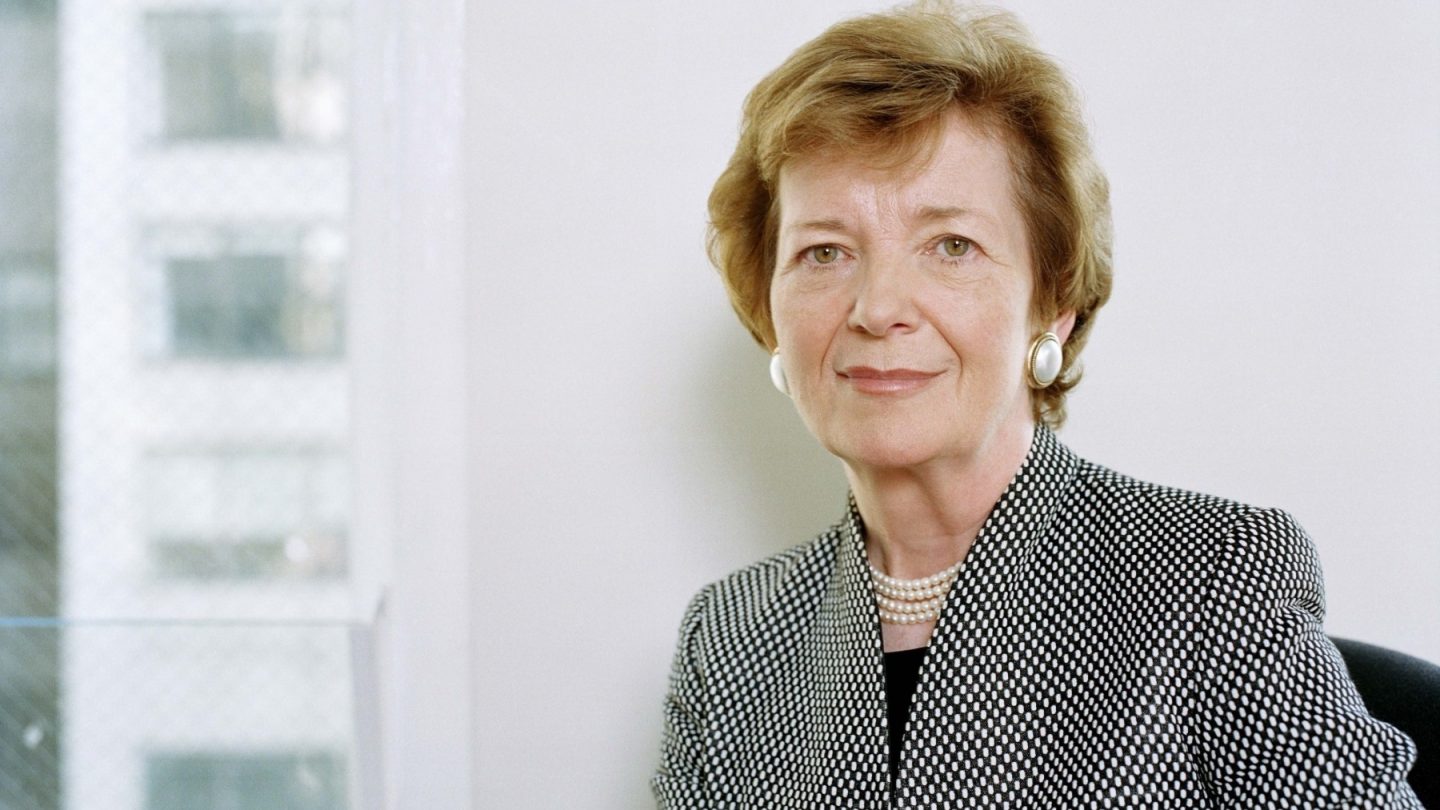On 24 February 2018, 32-year-old Emirati princess Sheikha Latifa bint Mohammed al-Maktoum fled her residence for India in an effort to escape abuse at the hands of her father, Dubai ruler and United Arab Emirates (UAE) Prime Minister Sheikh Mohammed bin Rashid al-Maktoum. Despite planning her escape for seven years, she was captured and deported back to the UAE in early March, just days after her initial departure. Her capture was quickly followed by her apparent disappearance from the public eye until December 2018, when photos and news headlines surfaced of former United Nations (UN) High Commissioner for Human Rights and former Irish President Mary Robinson’s visit with Dubai’s royal family, showing the princess close beside her. However, the circumstances of Sheikha Latifa’s reappearance have sparked serious disapproval of Robinson and have raised concerns in the international community that she may be complicit.
Sheikha Latifa is not the only daughter of Sheikh Mohammed to attempt an escape – in 2000, her sister Shamsa attempted to escape the family in Surrey, but was recaptured in Cambridge and disappeared from the public eye. Sheikha Latifa first attempted to escape the UAE when she was sixteen, but was ultimately recaptured and brought back to Dubai, where she alleges she was jailed and tortured for three years as a result of her attempt to flee her father. “My father is the most evil person I have ever met in my life,” Sheikha Latifa has been recorded stating “He’s pure evil. There’s nothing good in him.” Now nine months after her most recent escape attempt and her disappearance, Robinson’s visit at the request and expense of Princess Haya – one of Sheikh Mohammed’s wives – marked her first appearance in public since she was captured and brought back to the UAE.
While Sheikha Latifa’s capture and disappearance are indicative of the UAE’s ability to forcibly disappear individuals, it is unfortunately not out of the ordinary. Human rights organizations like Human Rights Watch (HRW) have highlighted that Sheikha Latifa’s disappearance is part of a larger trend of utilizing enforced disappearances against dissidents in the UAE. Starting in 2014, HRW has documented a noticeable increase in cases concerning enforced disappearances, with six individuals forcibly disappeared from mid-2014 to early 2015. At least eight instances of enforced disappearances after being in custody of state authorities and twelve further cases of incommunicado detention have been documented by HRW.
Saudi Arabia has also disappeared princes and members of the royal family – notably Sultan bin Turki bin Abdulaziz in 2003 and other members of the royal family who have been critical in the wake of Khashoggi’s murder – but while the region often finds Gulf leaders acting with impunity, it is still less common that cases of abuse against members of royal families surface and are accepted by international actors. While the willingness of Gulf governments to either forcibly disappear or disappear members of royal family from the public eye should raise the concerns of the international community, what is more alarming is the willingness of former UN Commissioner for Human Rights Robinson’s role in helping to overwrite part of the issue at large in the UAE.
Indeed, during her visit at the request and expense of Princess Haya, rather than question Sheikha Latifa’s extended disappearance, Robinson appeared to accept the government’s explanation. She has stated that Sheikha Latifa is “a very likeable young woman but clearly troubled, clearly needs the medical care that she’s receiving,” a line of thought that follows the assurances of the Dubai royal family. As the royal family reiterated that they wish to keep her out of the eye of the public, Robinson’s endorsement of the narrative that Sheikha Latifa is “troubled” have resulted in backlash from HRW, Detained in Dubai, lawyers, and other human rights activists.
As backlash has mounted, concern must also be raised for the greenlighting Robinson’s endorsement sends to the Dubai family and other Gulf leaders. As a former UN Commissioner for Human Rights, Robinson appears to tacitly support the account of a ruling family that captured and disappeared a member of the family from the public eye with little criticism or skepticism. The international community must also be concerned for the potential rise in enforced disappearances for dissidents and citizens, especially in with the UAE. A failure to act or to warn the Emirati government that these actions is unacceptable sends a dangerous message to Gulf leaders that there may in fact be little accountability for other enforced disappearances, such as that of dissidents and citizens. With its current upward trend of enforced disappearances documentation, this message is further concerning for leaders of the UAE. While Robinson has corresponded with current UN Commissioner for Human Rights Michelle Bachelet on the matters, it is fundamental that current actors in the UN and in the international community hold the UAE accountable for measures taken against Sheikha Latifa, or risk sending a more dangerous message of greenlighting in all cases of enforced disappearance.
Laura Neumayer is a Research Associate with ADHRB.





